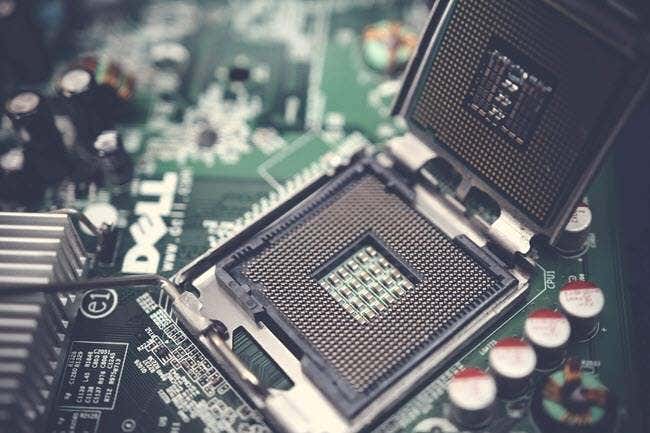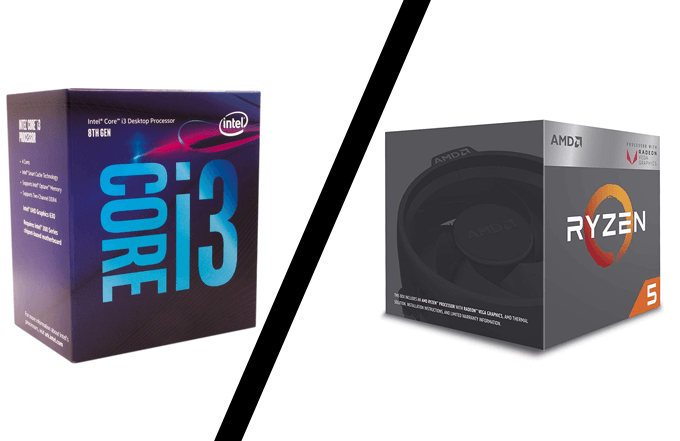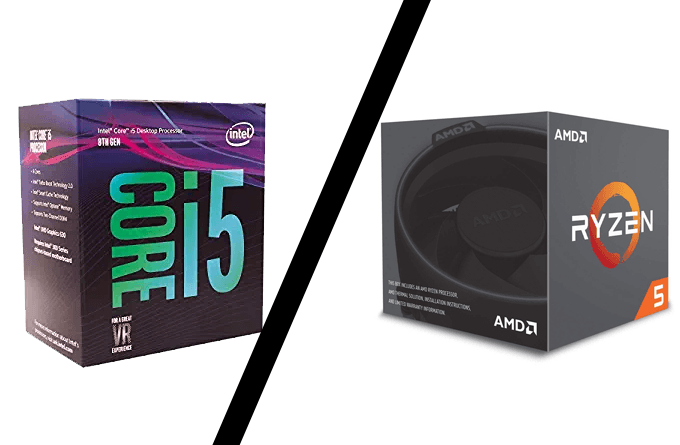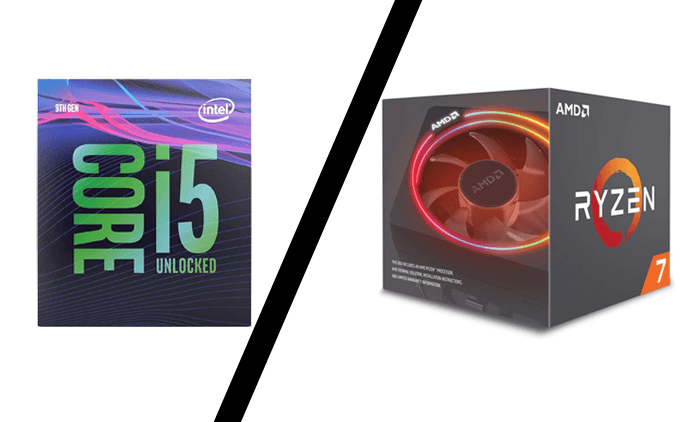Whilst Intel used to hold the crown for the best gaming CPUs, it has completely changed now that AMD has brought their Ryzen line into the industry.
To begin with, Ryzen absolutely blew their competition out of the water at the low end, and for some time, Ryzen was the clear choice for low end machines. But it didn’t take long for Intel to fight back.

These days, both later generation i3 and i5 chipsets are just as equipped as Ryzen CPUs. The battle is ongoing, and each CPU manufacturer is constantly fighting to be ahead. But in 2019, which option stands out to be the best?
In this guide, we focus on which are the best 2019 budget gaming options between both Intel and Ryzen.
Cheapest Intel vs Cheapest Ryzen – i3 8100 versus AMD Ryzen 5 2400G
So we have two neck and neck choices in terms of pricing at the very low end. The i3 8100 is essentially the cheapest, and latest i3 chipset available for desktop gaming in 2019. On the other side of the fence we have the equivalent, the Ryzen 5 2400G.
In terms of pricing, the i3 8100 sits at $129 on Amazon, whilst the Ryzen 5 2400G sits at $139. So, the pricing is close, but if you’re really on a tight budget, every extra dollar counts.
However, in terms of performance, what’s the difference between the i3 8100 and the AMD Ryzen 5 2400G? Well, surprisingly the performance is very, very close. Both have 4 cores at a clock speed of 3.6GHz, both score very similarly in benchmarks when using a high end graphics card, and the typical TDP for both is 65W.

Now, there is a slight advantage to owning the Ryzen 5 2400G. If you’re on a very tight budget, the integrated graphics in the Ryzen chip is far better than the Intel UHD Graphics 630 chip in the Intel i3-8100.
You can also boost the clock speed of the Ryzen chip to 3.9GHz, and if you plan to upgrade in the future, you may stand a better chance at being able to keep your motherboard if you get a good B450 motherboard with the Ryzen option.
So in terms of real world performance, the processors are neck and neck. Pricing-wise, the i3-8100 is better, but if you won’t be getting a graphics card, the Ryzen 5 2400G wins.
Winner: Ryzen for integrated graphics, i3-8100 with standalone graphics card
Mid-Range CPUS – Intel i5-8400 vs Ryzen 5 2600X
At this particular price point, there’s a clear winner. Firstly, the i5-8400 sells for $201, whilst the Ryzen 5 2600X sells for $175. Pricing for motherboards is similar no matter what you choose.
I’d only recommend this option if you plan to get a standalone graphics card, otherwise your CPU will be bottlenecked, so the graphics doesn’t really matter. However, I should mention that the Ryzen 5 2600X does not have integrated graphics.
In terms of raw performance, benchmarks put both CPUs neck and neck, with some results showing the Intel i5-8400 coming slightly ahead, whilst other benchmarking software shows the Ryzen 5 2600X ever so slightly in the lead. However, in terms of real gaming performance, the Ryzen 5 2600X is quite the step up from the i5-8400.

Another great thing about the Ryzen 5 2600X is that once again, once you get this CPU, you will have a few generations to wait and upgrade, unlike the i5-8400, which will require a new motherboard after we move onto 10th generation CPUs.
In terms of specifications, it makes sense, too. The Ryzen 5 2600X has 6 cores, but 12 threads. The Intel i5-8400 has just one thread per each of its 6 cores. Both CPUs have a max turbo frequency, but the Ryzen comes in at 4.2GHz, ahead of the 4.0GHz of the i5-8400.
TDP for the Ryzen 5 is 95W, which is quite power hungry, whilst the i5-8400 is just 65W, but for mid range products this shouldn’t matter all that much. It’s important not to be cheap on a power supply regardless of your budget, so this shouldn’t be a concern.
Winner: Ryzen 5 2600X
Best CPU Under $300 – Intel i5-9600k vs AMD Ryzen 7 2700X
If you haven’t spotted the trend already, I’ll spell it out for you. Ryzen is winning the low to mid end war in 2019. Their CPUs have better gaming performance at all price points and at a sub-$300 it’s no different story.
The i5-9600K is a great CPU, for sure, but the AMD Ryzen 7 2700X is better. The price difference may be a concern though. The AMD Ryzen 7 2700X is $285, whilst the I5-9600K is $260. Arguably, though, the performance increase is far better than the price increase, giving the Ryzen 7 2700X a higher price/performance score.

The Ryzen 7 2700X just has far more going for it. You get 8 cores with 16 threads, whilst the i5-9600K still has 6 cores and 6 threads. Not all games will utilize all of those cores efficiently, but in 2019 we’re finally reaching the point where more cores really does matter.
The clock rate of the i5 is higher at 4.6GHz max clock speed, with the max on the AMD Ryzen 7 2700X being 4.3GHz. However, with the improved architecture and core count, the performance is better still. Both CPUs are power hungry, with the AMD Ryzen 7 2700X listed to have a 105W TDP and the intel i5-9600K has a 95W TDP.
Winner: Ryzen 7 2700X
Summary
In summary, at every price point up to $300, Ryzen wins as a better gaming CPU in 2019. In the future, things may change, but as it currently stands, AMD holds their title to be the budget king. If you have any questions about the hardware mentioned in this article, leave a comment below and I’ll reply as soon as I can.